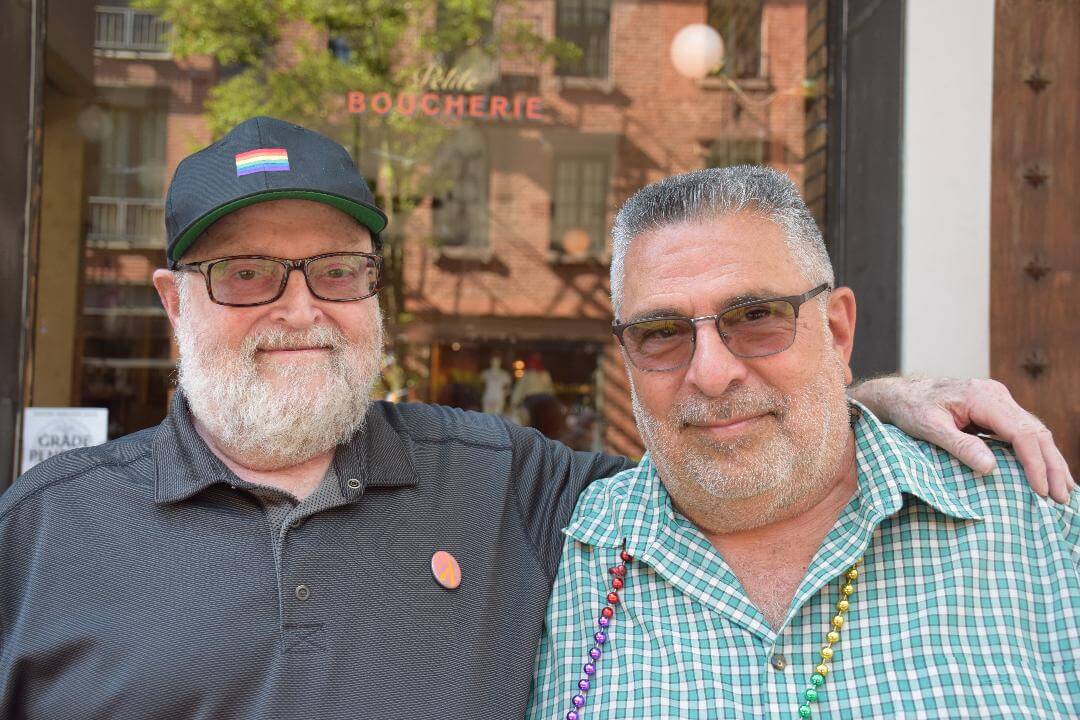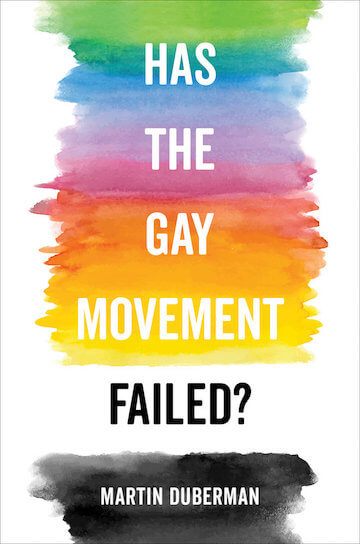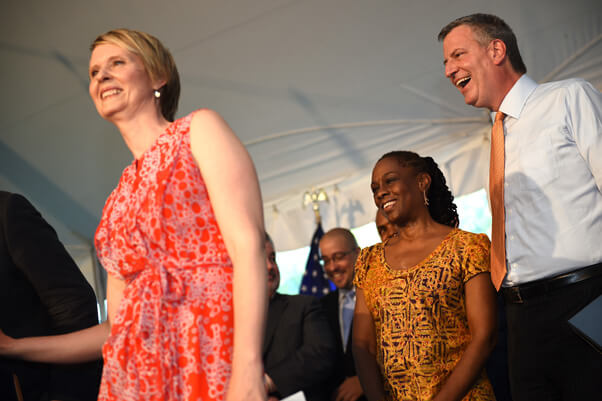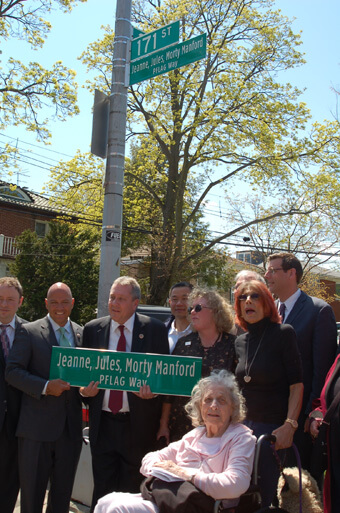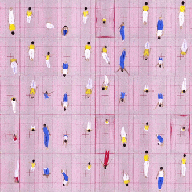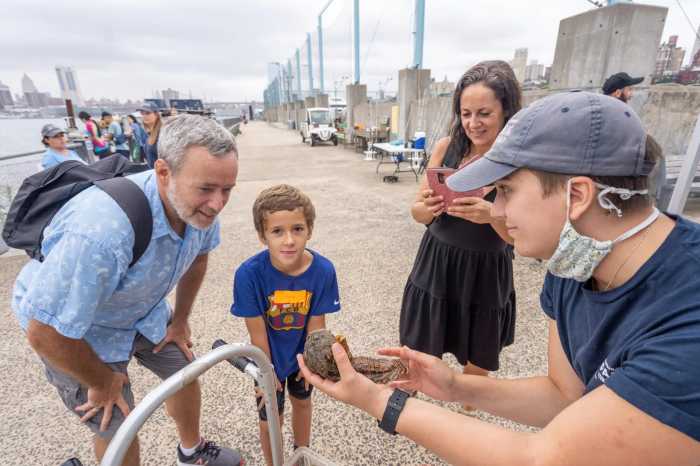Arnie Kantrowitz, who died at age 81 on January 21, was a leader of the generation of activists in the immediate aftermath of the Stonewall Rebellion who put their lives and livelihoods on the line to advance the cause of gay liberation. He died from complications of COVID, according to his life partner, Dr. Lawrence Mass.
A leader of the Gay Activists Alliance (GAA) in its first year in 1970, Kantrowitz was seen at a City Hall gay demonstration in 1971 as he was about to be trampled by a police officer on horseback. As a professor of English at the College of Staten Island from 1965 to 2006, his high-profile gay activism was not entirely accepted. Andy Podell, who also taught there, said Kantrowitz “had a collection of rocks that he displayed on his desk at the College that had been thrown at his office window.” But that did not deter Arnie from being himself and working to make coming out easier for generations to come.
One of Kantrowitz’s most famous early quotes was thus: “When I see young men and old women coming out of the closet and being called ‘faggots’ and ‘dykes’ and ‘pariahs’ and ‘betrayers of the family dream,’ then I am honored to be gay because I belong to a people who are proud.”
Kantrowitz, GAA’s vice president under Jim Owles, was one of the group’s most articulate spokespersons and carried the message of gay liberation into the hostile territory of talk shows of the early 1970s, where activists were often pitted against anti-gay bigots — including the hosts themselves. On “Jack Paar Tonite” in 1973 with a panel of GAA members, Paar objected to gays who “proselytize” and Kantrowitz patiently explained why the word “fairy” was offensive. Paar also referred to Genet as a “pederast” and that he “had a right to be offended” by Genet’s proclivity for “goats.” Kantrowitz said, “I think the goat might have a right to be offended.” Kantrowitz also made an eloquent plea for gay people being open.
Allen Roskoff, a GAA comrade and now the president of the Jim Owles Liberal Democratic Club, remembered Kantrowitz as “an intellectual leader and a dedicated activist” who had “colorful clothes like the Beatles wore” and created “a commune on Spring St. with early activists.”
Kantrowitz, Mass wrote, started “a pioneering Gay Studies course at the College of Staten Island, where he served as chairperson of the Department of English.”
Brandon Judell, veteran gay journalist and film professor, said, “Arnie certainly seemed to always be in a good humor, which was highly unusual for a gay activist, but possibly not for a biographer of Walt Whitman. Maybe those two vocations balanced each other out.”
James M. Saslow, who taught art history at CUNY and authored four books on LGBTQ+ art history, said, “For us in the post-Stonewall generation, Arnie was present at the creation, and he was a major role model to me, as to so many others, especially students…. It’s hard to overestimate the dramatic effect Arnie had on his students at plain-vanilla Staten Island with his effulgent mustache and outspoken queer politics long before the word ‘gay’ had reached there.”
Saslow was inspired to write for The Advocate after reading Kantrowitz’s cultural commentary there. He said, “We shared something else as well: our fabled, decrepit New Jersey home town, about which he wrote astutely in his autobiography, “Under the Rainbow.” He vividly evoked the eternal gay dilemma: Newark was both a home he loved and a prison he couldn’t wait to get away from.”
Kantrowitz’s 1977 memoir, “Under the Rainbow: Growing Up Gay” — a classic of the genre — dealt with his struggles coming to terms with his homosexuality pre-Stonewall and how he passionately threw himself into gay liberation soon thereafter.
Kantrowitz “spoke his mind like a prophet,” Saslow said. “Activists are, by nature, optimists, or they wouldn’t bother being activists; Arnie’s wry pessimism was the witty shell around a heart of schmaltz.”
In 1985 Kantrowitz, with his closest friend, activist, and gay film historian Vito Russo and others, co-founded the Gay and Lesbian Anti-Defamation League (later GLAAD) to counter the lack of coverage — and defamatory coverage — of the LGBTQ community in the media, especially by tabloids such as the New York Post. It was a grassroots activist group in those days — some of the darkest of the burgeoning AIDS pandemic.
Kantrowitz and Mass, a co-founder of GMHC and the first to write about what became AIDS, were not just life partners since 1982, but the original gay power couple. Mass said after an argument about writing about closeted public figures, “As I saw it, truth was more important than any other consideration. That’s when Arnie told me the story of one of his students who asked his candid opinion about the dress she was wearing. Arnie decided to tell her the truth — it was ugly, it was all wrong. At that point she confessed, crestfallen, that she’d made it herself. That, Arnie, said, was when he realized that there was something more important than truth — kindness. Arnie was truly a golden soul.”
Kantrowitz, born in Newark, NJ on Nov. 26, 1940, died in New York on Jan. 21, 2022. He is survived by Dr. Mass and his brother, Barry Kantrowitz. Arnie’s papers (1951-2008) are in the NY Public Library archive.

